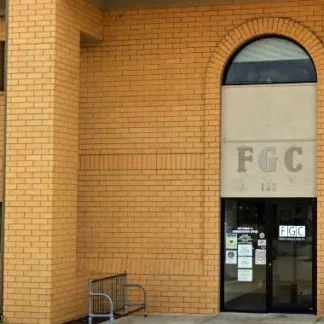Alcohols and Addictions Center
Alcohols and Addictions Center is a private rehab located in Springfield, Illino...
Family Guidance Centers is a drug and alcohol rehab located in Springfield, IL. They provide residential addiction treatment and medication-assisted treatment.
This facility offers inpatient addiction treatment and medication-assisted therapy for adults aged 18 and older.
This program is a safe and structured environment that provides 24-hour medical supervision for adults with a substance use disorder. Treatment consists of evidence-based therapies including individual and group therapy, cognitive behavioral therapy, motivational interviewing, and medication-assisted therapy. Medications like methadone, buprenorphine, and naltrexone, are used to decrease drug cravings and reduce painful withdrawal symptoms. Clients work with a medical professional and receive education on all three medications to determine the best path for them.
This facility is accredited by The Joint Commission.
Contact us for more information: (217) 544-9858

Connect with Family Guidance Centers by calling their admissions team directly.
(217) 544-9858 Website Get DirectionsThe Commission on Accreditation of Rehabilitation Facilities (CARF) is a non-profit organization that specifically accredits rehab organizations. Founded in 1966, CARF's, mission is to help service providers like rehab facilities maintain high standards of care.
CARF Accreditation: Yes
Research clearly demonstrates that recovery is far more successful and sustainable when loved ones like family members participate in rehab and substance abuse treatment. Genetic factors may be at play when it comes to drug and alcohol addiction, as well as mental health issues. Family dynamics often play a critical role in addiction triggers, and if properly educated, family members can be a strong source of support when it comes to rehabilitation.
Group therapy is any therapeutic work that happens in a group (not one-on-one). There are a number of different group therapy modalities, including support groups, experiential therapy, psycho-education, and more. Group therapy involves treatment as well as processing interaction between group members.
In individual therapy, a patient meets one-on-one with a trained psychologist or counselor. Therapy is a pivotal part of effective substance abuse treatment, as it often covers root causes of addiction, including challenges faced by the patient in their social, family, and work/school life.
Group therapy is any therapeutic work that happens in a group (not one-on-one). There are a number of different group therapy modalities, including support groups, experiential therapy, psycho-education, and more. Group therapy involves treatment as well as processing interaction between group members.
In individual therapy, a patient meets one-on-one with a trained psychologist or counselor. Therapy is a pivotal part of effective substance abuse treatment, as it often covers root causes of addiction, including challenges faced by the patient in their social, family, and work/school life.
In individual therapy, a patient meets one-on-one with a trained psychologist or counselor. Therapy is a pivotal part of effective substance abuse treatment, as it often covers root causes of addiction, including challenges faced by the patient in their social, family, and work/school life.
Alcohols and Addictions Center is a private rehab located in Springfield, Illino...
Memorial Counseling Associates is a non-profit rehab located in Springfield, Ill...
AA – Alcoholics Anonymous is a non-profit rehab located in Springfield, Illinois...
Triangle Center is a private rehab located in Springfield, Illinois. Triangle Ce...